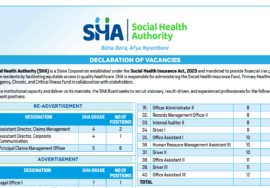
13 Reasons Employers Are Hesitant to Hire Gen X Workers
Below are 13 key reasons why employers hesitate to hire Gen X professionals, supported by industry insights and data.
1. Higher Salary Expectations
Gen X professionals, with decades of experience, typically expect higher salaries than younger employees. According to the Bureau of Labor Statistics (BLS), the median weekly earnings for workers aged 45–54 are 37% higher than for those aged 25–34.
Employers, particularly startups and small businesses, often prefer hiring Millennials or Gen Z workers, who are willing to accept lower wages. The cost-benefit analysis of hiring younger, cheaper talent influences hiring decisions.
Moreover, a high salary demand can make companies hesitant to invest in Gen X workers, fearing budget constraints. This financial consideration makes younger candidates more attractive in competitive job markets.
2. Overqualification Concerns
Many Gen X professionals apply for roles that require less experience than they possess. Employers often worry that overqualified candidates will either leave quickly for a better opportunity or become disengaged.
A Harvard Business Review study found that 42% of hiring managers hesitate to hire overqualified candidates due to concerns about job satisfaction. Companies fear that seasoned employees may struggle to adapt to lower-level tasks or have difficulty taking direction from younger managers.
Overqualification can also lead to expectations of faster promotions, which may not align with the company’s internal growth structure. This misalignment causes hiring managers to favor candidates who fit the role’s level of responsibility.
3. Perceived Resistance to Technology
The rapid evolution of workplace technology often disadvantages Gen X workers. Employers assume they are slower to adapt to new software, automation tools, and AI-driven platforms.
A Pew Research Center study indicates that Millennials and Gen Z are 41% more likely to adopt emerging tech tools compared to Gen X employees. This perception creates an unfair disadvantage, even though many Gen X professionals actively upskill.
Companies focused on digital transformation prioritize tech-savvy hires, reinforcing age-related biases. Consequently, Gen X workers must continuously prove their digital literacy to stay competitive.
4. Preference for Younger Talent in Leadership Development
Companies invest heavily in leadership pipelines, often favoring younger employees for long-term development. The Deloitte Global Human Capital Trends report found that only 13% of organizations prioritize leadership development for workers over 45.
Employers believe Millennials and Gen Z leaders will provide more years of service, making them a better return on investment. Additionally, organizations value adaptability and innovation—traits often stereotypically attributed to younger workers.
This bias sidelines experienced Gen X professionals despite their leadership capabilities. As a result, they face reduced hiring opportunities in managerial roles.
5. Cultural Fit Concerns
Modern workplace culture emphasizes collaboration, flexibility, and digital communication, areas where employers perceive younger workers as more adaptable. A LinkedIn Workplace Culture Trends report found that 78% of hiring managers prioritize candidates who align with company culture over those with extensive experience.
Employers fear that Gen X employees may struggle with casual, remote-first work environments or flat hierarchies. They worry that intergenerational collaboration challenges could disrupt team dynamics.
This bias leads to a preference for younger hires who are presumed to integrate more seamlessly.
6. Longer Hiring Process Due to Perceived Stability Concerns
Employers worry that Gen X workers, already established in their careers, will be less flexible regarding job roles and responsibilities. The Society for Human Resource Management (SHRM) found that 48% of hiring managers hesitate to hire mid-career professionals due to concerns over workplace adaptability.
Companies fear that these workers may be set in their ways, making it harder to reshape job roles based on evolving needs. Compared to younger hires, Gen X applicants often go through a longer and more scrutinized hiring process.
This can lead to them being passed over for roles requiring quick onboarding and adaptability.
7. Fear of Shorter Career Longevity
Employers prioritize candidates they can retain for a long time. A report by the U.S. Bureau of Labor Statistics shows that workers aged 45+ stay in roles for 9.9 years on average, but companies still prefer younger employees who may offer decades of service.
Employers worry that Gen X hires are closer to retirement and less likely to make long-term commitments. This fear discourages businesses from investing in their training and development.
Consequently, younger candidates appear to offer a better long-term return on hiring investments.
8. Healthcare and Benefits Costs
Older employees typically require more healthcare services, increasing employer costs. A Kaiser Family Foundation report states that healthcare spending for workers aged 45–54 is 32% higher than for those aged 25–34.
Employers with limited benefits budgets may hesitate to hire older employees due to the potential strain on their resources. Startups and small businesses, in particular, prefer younger candidates who require fewer health-related accommodations.
This financial consideration influences hiring decisions, even if an older candidate is the most qualified.
9. Bias Toward Digital-Native Generations
Younger generations grew up with digital technology, giving them an advantage in fields requiring rapid tech adaptation. According to a PwC workforce report, 60% of employers prefer hiring Millennials and Gen Z for roles involving AI, automation, and social media.
Gen X professionals must actively demonstrate their digital competency to counteract these biases. Even when they possess the required skills, hiring managers may assume younger workers are inherently more tech-savvy.
This bias puts Gen X candidates at a disadvantage in industries that prioritize digital fluency.
10. Assumptions About Work-Life Balance Preferences
Employers often assume that Gen X employees prefer rigid work schedules and traditional office structures. However, a Gallup survey found that 64% of Gen X workers prefer flexible work arrangements, contrary to stereotypes.
Companies prioritizing hybrid or remote work models may mistakenly view older candidates as less adaptable. This misconception leads to missed hiring opportunities for experienced professionals.
As businesses shift toward remote-first cultures, these biases can unfairly exclude Gen X applicants.
11. Limited Employer Branding Targeting Gen X
Most corporate branding and recruitment efforts focus on Millennials and Gen Z. A Glassdoor study found that only 11% of job ads directly address Gen X candidates.
This lack of targeted outreach results in fewer applications from this generation. Job postings often use language that appeals to younger workers, discouraging older professionals from applying.
Without intentional efforts to attract experienced candidates, Gen X workers remain overlooked.
12. Mistrust in Career Gaps and Job-Hopping
Gen X workers with career gaps, whether due to caregiving or industry shifts, face skepticism from employers. A CareerBuilder report found that 59% of hiring managers hesitate to interview candidates with employment gaps.
While younger workers can justify job-hopping as “gaining experience,” older professionals face scrutiny for similar career transitions. This double standard disproportionately affects Gen X applicants.
As a result, they must work harder to justify their career trajectory.
13. Industry Trends Favoring Youth-Centric Skills
The rise of AI, automation, and digital marketing has created demand for skills traditionally associated with younger professionals. A World Economic Forum report states that 65% of future jobs will require skills in AI, data science, and coding—fields where Gen X workers are underrepresented.
Without continuous upskilling, they risk being left behind in evolving industries. Employers often assume that younger candidates are better suited for roles requiring rapid adaptation to new technologies.
This perception further limits Gen X hiring opportunities.
African Union Recruitment (2025): Open Jobs / Online Application



